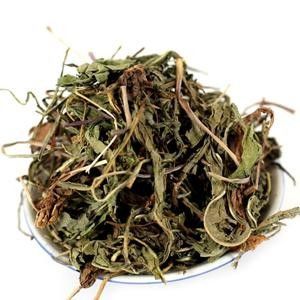Packaging: 40 g (or 500 g & 1 kg) containing the ground aerial parts of the plant.
(The price includes VAT.)
Other Names: Wild Chicory, Dandelion, Frogweed, Bitter Herb, Wild Lettuce & Bitter Plant
Properties:
- Cleanses the blood and arteries.
- Effective against arteriosclerosis.
- Excellent for cholesterol management.
- Beneficial for blood sugar levels.
- Aids in the proper functioning of the pancreas, liver, and spleen.
- Diuretic for the kidneys.
- Dissolves uric acid.
- Useful for blood pressure issues.
- Helps with urinary retention.
- Generally increases the body's defense capabilities.
- Useful for gallstones.
For issues such as liver cirrhosis, cholesterol, and fatty liver, we combine dandelion with artichoke, milk thistle, and wild rose. By combining tinctures of Artichoke, Milk Thistle, Dandelion, and Wild Rose, we achieve significantly more effective results for our health and the aforementioned conditions.
If you like our Dandelion, check out other products we make with it, such as detox tincture, dandelion tincture, tincture blends for detoxification, blends for the lymphatic system, blends for the endocrine system, blends for liver and bile detox, blends for stomach disorders, detox herb blends in tea bags, dandelion oil, and dandelion in tea bags.
Origin: Greece, Imathia region (collected from the Pieria Mountains at low altitude).
Storage: In a dark, cool place (5°C – 15°C).
Preparation: 1 tablespoon of dried dandelion (or a pinch of fresh) is steeped in 1 cup of boiling water in a covered container, left for 8-10 minutes, and strained before use.
Historical Facts: Dandelion has over 500 local names, with the most well-known being dandelion, frogweed, and wild lettuce. The English name "dandelion" and the French "dent-de-lion" come from the leaves that resemble lion’s teeth. The botanical name derives from the Arabic "tarakshaqum," meaning "the bitter herb." Arab physicians have documented its therapeutic properties since the 11th century.
Scientifically Documented Applications: The German Commission E and ESCOP support the use of dandelion for gastrointestinal discomfort, restoring the function of the intestines, liver, and bile, and for enhancing diuresis.
The bitter substances contained in dandelion enhance secretion in the gastrointestinal tract. Animal studies have shown an increase in urine output.





